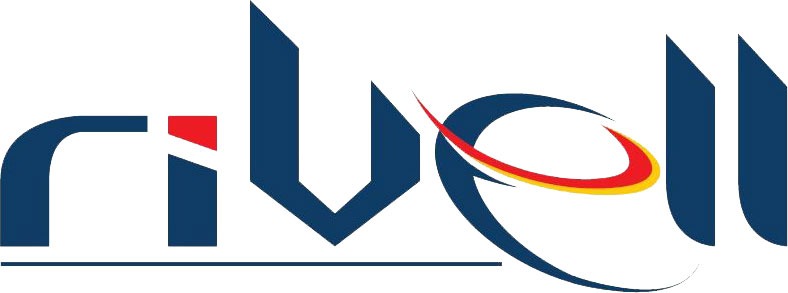Technology has become an integral part of every aspect of our lives. From our personal lives to the way we conduct business, technology has revolutionized the way we work. In the workplace, the integration of technology has brought about countless advantages and benefits. This article explores why technology is important in the workplace and its impact on modern businesses.
Advantages of Technology in the Workplace
1. Efficiency and Productivity
The utilization of technology in the workplace leads to streamlined processes and increased efficiency. Tools such as project management software, cloud computing, and automation can help automate repetitive tasks, reducing human errors and time wastage. As a result, employees can focus on more strategic and value-driven activities, leading to improved productivity. During the COVID-19 pandemic, a survey revealed that 93% of companies had to transition to remote work, 62% had to manage a surge in customer demand for online purchases and services, and 34% witnessed an increase in migrating their company’s assets to the cloud. These adaptations were made to improve efficiency and productivity.
2. Improved Communication and Collaboration
Modern technology has transformed the way teams communicate and collaborate. With the advent of email, instant messaging platforms, and video conferencing tools, communication barriers have been lifted, allowing for seamless collaboration regardless of geographical locations. This facilitates real-time decision-making, enhances teamwork, and fosters innovation.
3. Access to Information and Knowledge
The digital age has made information readily available at our fingertips. In the workplace, technology enables employees to access vast amounts of information and knowledge resources instantly. This promotes continuous learning, empowers employees to make sound decisions based on accurate data, and keeps businesses ahead of the competition in this rapidly evolving market.
4. Data Management and Analysis
Technology has revolutionized the way companies manage and analyze data. With advanced data analytics tools, businesses can gather insights from large volumes of data, enabling them to make data-driven decisions, identify patterns, trends, and customer preferences. This leads to better strategic planning, targeted marketing campaigns, and improved customer satisfaction.
Benefits of Technology in the Workplace
1. Cost Savings
Incorporating technology into the workplace can result in significant cost savings. For instance, managed IT services can eliminate the need for a large in-house IT department, reducing operational expenses. Additionally, technologies such as Voice over Internet Protocol (VOIP) can significantly reduce communication costs, both internally and externally.
2. Enhanced Security
As businesses rely heavily on digital data and information, technology plays a crucial role in ensuring data security and privacy. Cybersecurity measures, such as firewalls, encryption, antivirus software, and data backup and recovery solutions, safeguard sensitive data from unauthorized access or loss. This fosters trust among clients and protects businesses from potential financial and reputational damage. Data backup and recovery solutions have become crucial for businesses, as 93% of companies that lost their data center for 10 days or more due to a disaster filed for bankruptcy within a year.
3. Flexibility and Remote Work
Technology enables employees to work from anywhere, promoting a flexible work environment. With cloud computing, remote collaboration tools, and mobile devices, employees have the freedom to complete tasks and attend meetings from any location, ultimately increasing work-life balance and job satisfaction.
4. Competitive Advantage
Embracing technology in the workplace gives businesses a competitive edge. By leveraging innovative tools and staying abreast of technological advancements, companies can adapt quickly to changing market trends, meet customer demands, and outperform their competitors. This leads to business growth, increased market share, and higher profitability.
How has New Technology Affected the Modern Workplace?
The introduction of new technology has profoundly impacted the modern workplace in several ways:
1. Automation and Artificial Intelligence (AI)
Advances in technology have led to the integration of automation and AI, eliminating mundane and repetitive tasks. This allows employees to focus on more complex and creative tasks, contributing to higher levels of efficiency and productivity.
Read More : Optimizing Efficiency and Promoting Innovation through AI-Managed Services
2. Remote Work and Virtual Collaboration
The COVID-19 pandemic accelerated the adoption of remote work, showcasing the importance of technology in facilitating virtual collaboration. Video conferencing, project management platforms, and cloud-based tools have become essential for organizations to maintain productivity and seamless workflow.
Microsoft Office 365 support has played a pivotal role in enabling organizations to leverage these tools effectively, providing assistance and guidance to ensure smooth implementation and usage.
3. Evolution of Jobs
As technology continues to evolve, new job roles have emerged, requiring employees to upskill or adapt. The modern workplace demands professionals who are well-versed in technology, cybersecurity, data analytics, and digital marketing, among others. This evolution presents both challenges and opportunities for employees and employers alike.
The impact of technology in the workplace
Recent studies show that businesses that invest in technology experience a 20-25% increase in productivity. In addition, 80-93% of employees believe that technology enables them to work more efficiently and effectively. Furthermore, the integration of technology in workflow processes has led to a 66% reduction in manual errors and saving companies valuable time and resources. Moreover, studies have shown that 40% of workers report that technology adoption has allowed them to streamline communication and collaboration among team members, fostering innovation and boosting overall performance. These statistics highlight the importance of technology in modern-day workplaces and emphasize the need for businesses to embrace digital transformation.
At Rivell, we understand the power of technology and its impact on the workplace. With our expertise in digital transformation solutions, we can help your business use the latest advancements to drive productivity, efficiency, and innovation. Our team of experts will work closely with you to analyze your unique needs and develop tailored strategies that align with your goals. Whether it’s implementing cutting-edge software, optimizing communication and collaboration systems, or integrating automation processes, we have the knowledge and experience to guide you every step of the way.
To harness the full power of technology in the workplace, consider partnering with a trusted IT service provider like Rivell managed IT services, cybersecurity solutions, data backup and recovery, and IT support will ensure your business stays ahead in this technology-driven era. Contact us at https://rivell.com/contact/ to learn more about how we can propel your business towards success in the digital age. Embrace the future of work and unlock the full potential of your business with Rivell.
Conclusion
In conclusion, the importance of technology in the workplace cannot be overstated. Its advantages and benefits, ranging from enhanced efficiency and productivity to improved communication and decision-making, have transformed traditional work environments. Furthermore, the integration of technology not only saves costs and enhances security but also provides businesses with a competitive edge. As technology continues to advance, organizations must embrace it to unlock its full potential and thrive in the dynamic and evolving business landscape.









